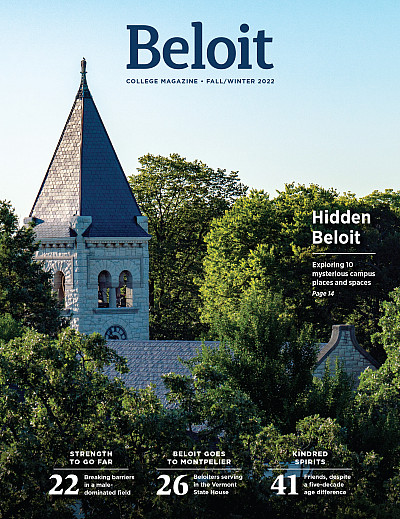Artificial intelligence for a better world
It’s not every day that Fortune magazine interviews a Beloiter about their summer experience at MIT, let alone before they even graduate. But that’s just one day in a year of exciting developments for Ericka Corral’22.
A computer science major and first-generation college student from Chicago, Ericka Corral’22 was spotlighted in Fortune’s coverage of MIT’s FutureMakers Create-a-Thon, a virtual six-week program that aims to increase racial and gender diversity in the artificial intelligence field. The program partners with MIT RAISE (Responsible A.I. for Social Empowerment and Education) and SureStart, an artificial intelligence training program that mentors future researchers and technologists from historically marginalized communities.
This year’s Create-a-Thon cohort attended seminars, met with experts, and worked in teams to tackle real-world problems. Corral’s group worked on an app to detect facial paralysis.
“One of the team members had a family history of strokes, which is how we came up with the project,” Corral says. “It was mind-blowing to realize we could be helpful to someone we knew by inventing a way to detect strokes more rapidly.”
Although Create-a-Thon was a virtual experience this year, the work solidified Corral’s desire to conduct research in the future and boosted their confidence in entering a Ph.D. program in A.I. at the University of Denver this fall.
Pursuing an advanced degree can be stressful for many first-generation students, especially those who come from immigrant families. But Corral found support in all corners of the Beloit experience. The summer before freshman year, Corral participated in programming offered by the Student Excellence and Leadership program (SEL), which supports students who are underrepresented in higher education.
Corral also became a McNair scholar, completing high-level research and receiving support and advice about applying to graduate programs. “When I decided on McNair, I wasn’t sure if I wanted to go to graduate school; I had no idea what that involved,” Corral says. “I also didn’t know what to think about doing research, as my experience with it was so limited.”
It wasn’t long before Corral was juggling multiple research projects on campus with practical applications to helping others.
“After my sophomore year, I spent the summer helping computer science professor Eyad Haj Said develop an algorithm for detecting kidney disease,” says Corral.
Corral also completed two projects with math professor Ben Stucky, including a summer reevaluation of the college’s intro to calculus course and a senior capstone, which used mathematical modeling to report on the best places to deploy mobile healthcare clinics in Walworth County, Wis.
On top of a rigorous academic record, Corral also minored in Japanese. Language professor Susan Furukawa helped Corral stay organized during their first-year initiative course together, but soon became a close mentor.
As Corral enters a totally new environment this fall, all these Beloit experiences — and lifelong connections — will go along with them.





